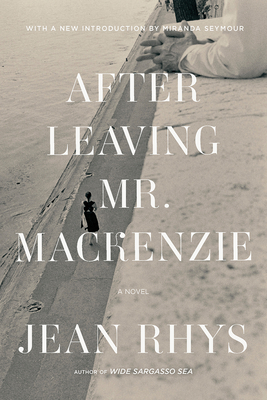A curiously sad autobiographical novel, After Leaving Mr Mackenzie by Jean Rhys is an episode in the itinerant life of Julia Martin, a thirty-something woman leading a precarious existence in Paris and London between the wars. Hers is a life of cheap hotels, booze, and financial dependence on unsuitable men, who invariably let her down. When her ex-lover in Paris cuts off her weekly allowance, the penniless Julia decides to muster her fading magic and head back to London, in hopes of finding love, solvency, and reconnection with her estranged family.
First published in 1931, several decades before Rhys’ magnum opus, Wide Sargasso Sea, her brilliantly perceptive second novel encompasses themes of marginality, grief and the currency of beauty. Many elements of Rhys’ own life and experiences are reflected in the fatalistic tale of Julia Martin, a melancholic character who we first discover living in a tawdry hotel on the Quai des Grands Augustins.
These days, Julia is weary of men, life and love. Her time is spent reading, taking lunch at the same restaurant every afternoon, and wandering the lively streets around the Seine, often returning to her hotel with a bottle of something consoling. Every Tuesday morning, the hotel chambermaid brings up a letter from Mr Mackenzie’s solicitor containing a cheque for 300 francs (a ‘discarded mistress’ pay-out that Mr Mackenzie finds pleasingly guilt-assuaging).
In this way, Julia is cocooned from a world that she finds cruel and unyielding. Until the day the chambermaid presents her with a letter containing a final cheque and Mr Mackenzie’s dismissal, and she finds herself on the midday boat train to Calais, bound for London, a city where, without money, ‘drabness swallowed you up very quickly’. Hopefully her family will welcome her back.
In a novel that veers between hope and foreboding, Rhys explores ideas around single women and independence in the early 20th century. Past events, yet to be revealed, have left Julia in a parlous position. With no obvious talents bar that of seduction, she has lived off her lovers for years and returns to London without money, connections, or the bloom of youth. ‘She doesn’t even look like a lady now,’ thinks her sister, Norah, upon their somewhat frosty reunion.
Norah, too, is a victim of her time in history, applauded for dedicating years to nursing their dying mother but bitterly noting her own life shrivel. Only when Mother dies will she finally have some money of her own. One sister is ‘respectable’, one is not, and both are trapped.
In Rhys’ poignant circular story, proximity to Julia’s family opens old wounds, gentleman friends rematerialise, and the ghosts of Julia’s past emerge in a London that is all nebulous fog and shadow. At one point, walking in Bloomsbury exactly as she used to a decade ago, she even believes she has seen the ghost of herself drifting out of the fog to meet her. It doesn’t recognise her.
Julia’s problem is an age-old one. No matter where she goes to escape, she takes herself with her. Is there any hope for change?
An affecting and memorable read.
After Leaving Mr Mackenzie by Jean Rhys is published by Penguin Classics, 176 pages.





